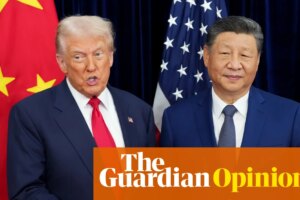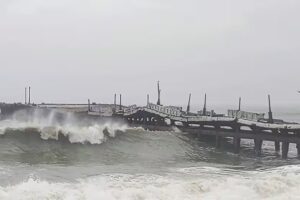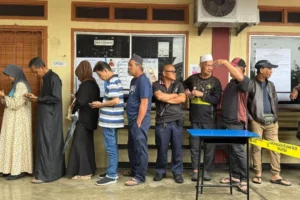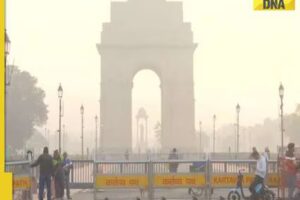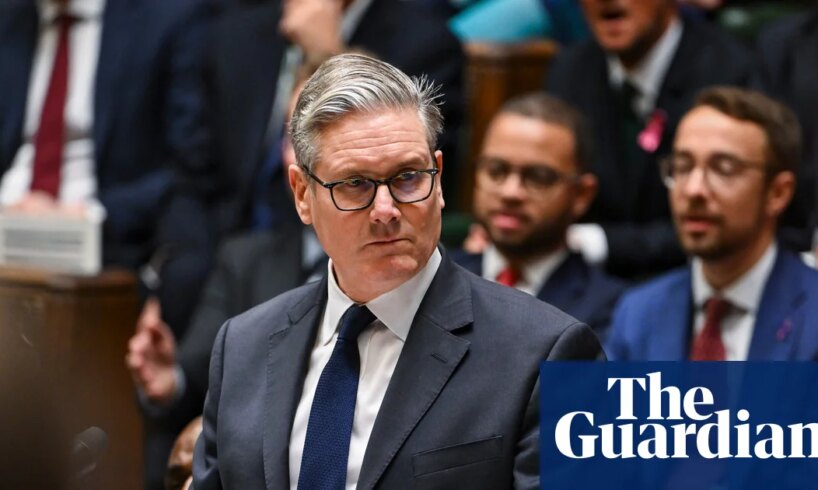
When Keir Starmer finally read the witness statement from his deputy national security adviser for the trial of two British men accused of spying for China, some of his frustration about the collapse of the case began to dissipate.
His government had been besieged by the Tories for two weeks over its role, being accused of “secretly sabotaging” the trial, “blocking” key witnesses and “hiding behind process”, all to avoid having to tell a court that China was an enemy.
Media reports suggested the refusal by the government to describe China as a threat had scuppered the case, eventually forcing it to publish three witness statements from Matthew Collins, the government’s deputy national security adviser – one produced under Rishi Sunak’s government and two under Starmer’s.
The statements presented a generally consistent picture of China as – in the words of the first, from December 2023 – an “epoch-defining challenge”.
The final statement said the UK wanted a “positive relationship” with China and would follow a “three Cs” approach – cooperation, competition, but also “challenge where we must, including on issues of national security”.
Yet this was submitted in August, and – despite No 10 suggesting any evidence would only refer to the government’s position at the time of the alleged spying – the “three Cs” approach was clearly Labour policy.
Just 24 hours earlier, Chris Wormald, the cabinet secretary, decided not to release the witness statement because prosecutors had argued it would be inappropriate to do so outside a courtroom. Yet by Tuesday evening the Crown Prosecution Service had changed its mind.
Now senior government figures are hopeful the evidence will help to draw a line under what is a complex legal controversy, and one which they argue could have been avoided had the Tories fixed flaws in the Official Secrets Act when in power.
Downing Street is attempting to turn the tables, accusing Kemi Badenoch of “overreach”. One insider said: “Far from this being the fault of the Labour party, the main evidence was provided under the Conservatives in 2023.”
Kemi Badenoch. Downing Street is attempting to turn the tables on Tory criticism, accusing Kemi Badenoch of ‘overreach’. Photograph: House of Commons/UK Parliament/PA
“Now the question is for the Tories: did they have access to the evidence at the time?” The answer is “yes”, according to sources in Rishi Sunak’s No 10 operation.
Much has been made by the Tories of a meeting between national security adviser Jonathan Powell and Olly Robbins, the top civil servant at the Foreign Office, on 1 September this year. Yet the third and final piece of evidence from Collins was submitted weeks earlier and – crucially – the CPS had made no further requests for evidence to support their case before abandoning it.
Downing Street sources say the meeting was held to discuss broader bilateral issues, including how the government should handle the trial which, at that point, was going ahead. “Unless Jonathan Powell had a time machine, he couldn’t have known that it was going to collapse,” one said. They insist they didn’t get into the evidence.
Starmer was first told the case was in danger of collapsing a couple of days before it actually did on 15 September, his spokesperson has confirmed.
Sources maintain it would have been inappropriate for the prime minister to intervene in a legal process. The Guardian also understands that Collins was told by the CPS that once charges had been laid, he couldn’t share his evidence further.
The Tories, however, have suggested that given the allegations involved spying on MPs, special circumstances should have applied. On social media, Badenoch accused Starmer of being “too weak” to stand up for national security, a criticism flatly rejected by No 10.
But what of the CPS? Legal experts are generally divided in their response to the collapsed trial. Many – including some government lawyers – believe the reliance on the term “enemy” in the Official Secrets Act meant there was never any chance of a successful prosecution. Others feel that given the precedent set by previous espionage cases and Collins’ evidence, prosecutors should just have cracked on.
Stephen Parkinson, the director of public prosecutions, also faces questions after he told some of parliament’s most senior MPs on Wednesday night that the CPS dropped the case as the evidence provided by Collins was “5% less” than the threshold required for prosecution. He will now face calls to make crystal clear exactly how it fell short,
especially as Collins repeatedly referred to China as a “threat”.
While Starmer, as a former director of prosecutions, is in his comfort zone when it comes to the law, there are regular rumblings on his own side about whether he is able to spot political landmines. Despite that, his team are hoping he has dodged this particular trap.
And yet questions remain. Could Collins have offered more evidence within the constraints of the Official Secrets Act? What did the attorney general do when told by Parkinson the spying case was on the brink of collapse? Is there more that Starmer could have done?
In the Commons, former security minister Tom Tugendhat, asked Starmer: “The real question is, what political direction did this government give to their officials before they went to give evidence?”
“Absolutely none,” he replied. “I was the chief prosecutor for five years, and I can say … not once was I subjected to political pressure of any sort from anyone. That is the tradition in this country; it is a proud tradition; it is one I uphold as prime minister.”
Yet if any evidence should emerge to the contrary – especially given the third piece of evidence appears to reflect Labour party policy – then the domestic political fallout from the China spy trial will be very far from over.
